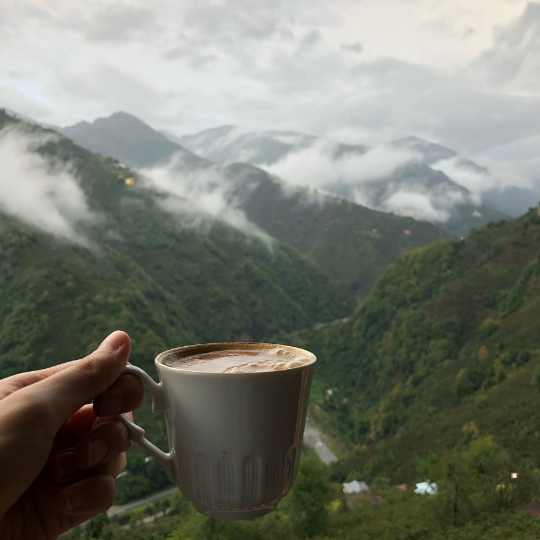
The Rigorous Standards of Blue Mountain Jamaican Coffee Certification
Blue Mountain Jamaican Coffee is renowned for its exceptional quality, unique flavor, and smooth finish. But behind its worldwide reputation is a stringent certification process that ensures only the highest-quality beans bear the prestigious label. The meticulous standards of this coffee certification play a vital role in preserving its status as one of the finest and most sought-after varieties. From the slopes of Jamaica’s mountains to the cup, each bean undergoes rigorous quality control, ensuring that every sip delivers a perfect balance of flavor and aroma. Ever take a look into the certification process that sets this coffee apart? Let's see what insures that only the best beans makes it to market.
A Brief History of Certification
Blue Mountain Jamaican Coffee’s history of certification began in the early 1950s. The coffee industry in Jamaica recognized the need to safeguard its most valuable agricultural product from counterfeits and substandard imitations. Although the coffee had been celebrated for its quality for years, the lack of an official system put its reputation at risk.
In response, the Jamaican government established the Coffee Industry Board of Jamaica (CIB) in 1953. The CIB’s main responsibility was to regulate the production and export of this premium coffee. It implemented strict guidelines to ensure that only coffee grown, harvested, and processed under exacting conditions could bear the official label. The creation of this regulatory body marked the beginning of an era of quality assurance for the Jamaican coffee industry.
The Perfect Growing Conditions
The secret behind Blue Mountain Jamaican Coffee’s unparalleled quality lies in the unique environment in which it is grown. The coffee is cultivated on the slopes of Jamaica’s Blue Mountains, one of the highest mountain ranges in the Caribbean. These mountains provide the ideal climate for coffee growing, with high elevations, cool temperatures, misty weather, and nutrient-rich volcanic soil.
The combination of these factors causes the coffee cherries to mature slowly, allowing the beans to develop a complex flavor profile. Slow-growing coffee beans, like those in the Blue Mountain region, are typically more balanced and nuanced in taste. This slow maturation process gives this special variety its signature mild sweetness, floral notes, and smooth, creamy body.
But not every coffee grown in the Blue Mountains qualifies for this prestigious label. The Coffee Industry Board has established a specific geographic region where coffee must be grown to be eligible for certification. Only beans cultivated at altitudes between 2,000 and 5,000 feet in the parishes of St. Andrew, St. Thomas, Portland, and St. Mary can be classified as Blue Mountain Jamaican Coffee.
The Stringent Farming Standards
To meet the strict requirements for certification, farmers must adhere to traditional, time-tested farming methods. One of the most important practices is hand-picking the coffee cherries. This method ensures that only the ripest cherries are harvested, a key factor in preserving the quality and flavor of the beans. Machine harvesting, which is common in other coffee-growing regions, can result in unripe or damaged cherries, leading to inconsistent and subpar beans.
Additionally, coffee farmers specializing in this particular valuable variety prioritize sustainable practices, including shade-grown techniques. Shade-grown coffee is cultivated beneath the canopy of larger trees, which helps protect the environment by promoting biodiversity, reducing water usage, and minimizing the need for chemical inputs. These environmentally friendly practices not only benefit the ecosystem but also contribute to the overall quality of the coffee.
The Processing of Coffee Beans
After the coffee cherries are hand-picked, they undergo a meticulous processing method to ensure that their high quality is preserved. Blue Mountain Jamaican Coffee is typically wet-processed or washed. In this method, the outer fruit layer of the coffee cherry is removed before the beans are dried. The wet-processing technique enhances the clean, bright flavors of the beans, ensuring a smooth and balanced taste in every cup.
The process begins with pulping, where the outer skin is removed to reveal the coffee beans. The beans are then fermented to strip away the sticky mucilage layer. After fermentation, they are thoroughly washed to remove any remaining mucilage, leaving behind only clean, green coffee beans.
The beans are then carefully dried, either through sun-drying or mechanical dryers, depending on the weather conditions. During this stage, it is crucial to monitor the beans closely to ensure that they dry evenly, as uneven drying can negatively impact the flavor and quality of the final product.
Grading and Certification Process
Once the coffee beans have been processed and dried, they undergo a rigorous grading system. These exquisite coffee beans are graded based on size, density, and quality. Only the finest beans, free from defects, are considered for Blue Mountain certification. Larger beans with greater density are typically viewed as the highest quality, as they have the most complex and developed flavors.
The Coffee Industry Board inspects each batch of beans to ensure they meet the exacting standards. This includes a final inspection where the beans are roasted and tasted by expert cuppers. The tasting process, known as cupping, evaluates the beans for flavor, aroma, body, acidity, and balance. Only beans that pass this comprehensive taste test are certified as authentic.
Ensuring Authenticity and Quality
The rigorous certification process is essential for protecting the integrity of Blue Mountain Jamaican Coffee. The certification not only guarantees that consumers are getting a product of superior quality but also helps prevent fraud and counterfeiting. With the high demand for this particular variety, there have been instances of lower-quality beans being falsely marketed under its name. The strict certification process acts as a safeguard against these imitations, ensuring that the coffee’s reputation remains untarnished.
The exclusivity of this world-renowned coffee is also a result of the limited amount of coffee produced in the Blue Mountain region. Due to the small geographic area and the meticulous attention to detail in production, only a small quantity of beans is harvested each year. This limited supply, coupled with the coffee’s exceptional quality, makes it one of the most sought-after and expensive coffees in the world.
The rigorous standards of Blue Mountain Jamaican Coffee
Through a rigorous certification process, Blue Mountain Jamaican Coffee has earned its reputation as one of the world's most prestigious coffees. Every stage—from the exceptional growing conditions on Jamaica's rugged mountains to the careful hand-picking and precise processing of the beans—is meticulously designed to ensure that only the finest beans receive the coveted Blue Mountain Jamaican Coffee label.
Renowned for its balanced flavor, gentle sweetness, and smooth finish, this coffee continues to captivate both enthusiasts and connoisseurs. The dedication to quality, sustainability, and time-honored tradition behind every cup reflects the passion and craftsmanship inherent in its production.
By adhering to these strict standards, this "Champagne of Coffee" remains a symbol of excellence and luxury, cherished by those who appreciate the art of fine coffee-making. To explore the rich heritage and detailed journey of this extraordinary brew, visit our Blue Mountain Jamaican Coffee Hub and discover more insights on our Frontier Coffee Roasters Coffee Hub.

